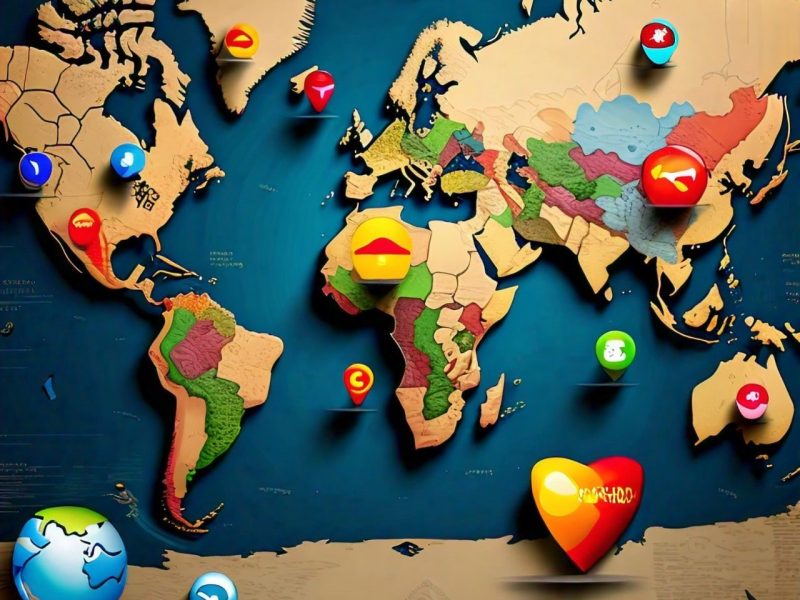The quote “Nature has a fundamental resistance to vacuum” is often attributed to the ancient Greek philosopher Aristotle, though he didn’t phrase it exactly this way. Aristotle’s idea came from his observations of the natural world, specifically in his work in Physics. He theorized that a vacuum (a space completely devoid of matter) cannot exist in nature because forces and matter will always rush in to fill any empty space.
This concept later evolved during the Renaissance and was popularized in the scientific community. Thinkers like René Descartes expanded on it, still particularly in physics, as scientists began exploring how nature responds to empty spaces. Over time, the phrase “Nature abhors a vacuum” became a metaphor for how life, not just nature, fills any void—whether it’s in relationships, businesses, or personal lives. When something is removed or missing, something else will inevitably take its place.
In a broader sense, it highlights the dynamic nature of life—there’s no such thing as emptiness for long. If you leave a space in your life, be it emotional, social, or professional, something will eventually fill it, whether positive or negative. This speaks to the importance of being mindful of what enters when a vacuum is created.
Imagine throwing a huge party, and halfway through, the biggest guest (that one who brought the fanciest vibes and had everyone’s attention) suddenly leaves. For a moment, it feels like the room got quieter, and you’re not sure how the party will carry on. But then, something magical kicks in, the seemingly quiet guests get a boast in confidence and start telling jokes, the music suddenly starts getting better, and people realize, “Hey, this party’s just getting started!” That’s exactly what happens when multinationals leave a country like Nigeria, and we get international about filling the void. Sure, their departure might seem like a blow at first, but the opportunities they leave behind are like an empty dance floor—just waiting for local businesses to step in and shine.
Now, before you think this is just a wild analogy, let’s break down how Nigeria’s economy is like that dance floor, where local businesses, investors, and governments can boogie on without the big players. The multinationals might have left the building, but the stage is set for something far more exciting: the rise of local champions, the creation of opportunities, and a transformation that could make Nigeria’s economy groove to a whole new beat. Mark you the functional word that will make this happen is “being intentional”.
Market Share Redistributed: Locals Take the Mic
When multinationals pack their bags, it’s like the corporate equivalent of a mic drop. But instead of the crowd dispersing, local companies are suddenly handed the mic. Take Kenya, for example. When Cadbury closed its Kenyan operations in 2014, local chocolate makers saw an opening. Now, smaller Kenyan brands like Dairyland are thriving, making chocolates that cater more to local tastes and doing so with the agility that big corporations sometimes lack. Nigeria’s local businesses can do the same, stepping up to deliver products and services that are more in tune with the nuances of their respective local market.
So, while some multinationals have been dominating certain sectors for years, their departure is the perfect opportunity for Nigerian entrepreneurs to seize market share. With these giants gone, there’s more room for homegrown brands to shine like never before—becoming household names, not just backup singers.
The David and Goliath Tale: Less Competition, More Innovation
Multinationals often play the role of Goliath, with local businesses feeling like David trying to sling stones just to survive. But guess what happens when Goliath drops? David gets to chill a bit, sip his tea, and actually focus on growing his own business. Without the pressure of competing with well-established foreign giants, local businesses can now breathe easier, take better calculated risks, and innovate.
Look at India. When Coca-Cola left the country in 1977 due to regulatory issues, Thums Up, a local cola brand, took over the market and became so popular that when Coca-Cola eventually returned, they bought Thums Up rather than competing head-to-head. Nigeria can take a page out of India’s playbook by nurturing local brands and businesses that truly understand the consumer base, offering innovative products and services that multinationals might have overlooked.
Job Creation: The Party Goes On
If you thought the departure of multinationals meant fewer jobs, think again. When these giants leave, it doesn’t mean the jobs disappear—they just change hands. Multinationals might’ve hogged the spotlight, but local companies are the hardworking stage crew that now gets the chance to become the stars.
Consider South Africa’s mining sector. When big players like AngloGold Ashanti sold off its mines, local mining companies took over operations. These companies, closer to the ground, were more in tune with local labour demands and invested in their workforce massively. Nigeria’s local businesses have the same potential to not just maintain jobs, but create more by expanding their operations.
Investors: It’s Time to Strike Gold
Now, for the investors reading this, don’t pack up your bags, don’t put away your money just because the multinationals are leaving. This is your golden opportunity. Picture it like real estate: when a prime property suddenly goes on sale, savvy investors don’t hesitate—they move in, grab the best deals, and enjoy the returns. Investors should see the exit of multinationals not as a loss, but as the market opening up in sectors that were previously dominated by foreign interests.
Indonesia is a classic example. When oil and gas multinationals began downsizing, local energy companies such as Medco Energi swooped in, and investors who backed these local players enjoyed substantial returns. Nigeria, with its burgeoning tech, agriculture, manufacturing sectors and robust food and beverage industry should at this time offers similar rewards for those willing to invest in homegrown talent and innovation.
Governments: Time to Bring Out the Buffet
If you’re hosting this economic party (hello, Nigerian government!), it’s your job to keep the guests entertained and well-fed. That means improving the business environment for local companies. Think of it like bringing out the best buffet spread: tax incentives, infrastructure improvements, industry targeted policies (this is the time for a printing and packaging policy as this sector will be handy to boast the appearance of the so many products that will emerge), simplified regulations—you want businesses to feel like they’ve been invited to the party of a lifetime.
In China, the government went all out by improving infrastructure and providing financial incentives to local tech firms when international companies started scaling back. Today, Huawei and Xiaomi are global giants. Nigeria has the potential to replicate that success by creating a business-friendly environment where local companies can thrive without unnecessary red tape and where investors feel welcomed with open arms. Somersaulting government policies are a turn off in a time like this, so the Nigeria government must enter a creative reformist mode.
Local Companies: Ready to Dance?
For local businesses, the exit of multinationals is your time to shine—like a breakout star at the party who suddenly owns the dance floor. But you can’t just stand there and wait for things to happen; you’ve got to get in the groove. That means adopting global best practices, like improving quality control, embracing technology, and collaborating with other businesses to share resources.
Brazil’s Embraer is a prime example of how a local company can rise to global prominence. When foreign competitors overlooked the regional jet market, Embraer swooped in and became a major player in the global aviation industry. Nigerian companies, particularly in tech, agriculture, and manufacturing, have the potential to follow a similar path.
In Conclusion. The Party’s Not Over—It’s Just Getting Good…
So, the floor is wide open for local businesses to take over and shine, for investors to strike while the iron’s hot, and for governments to set the stage for long-term growth like yesterday. It’s time for Nigeria to dance to its own beat, and this is just the start of the rhythm that could take the nation to new heights. To those who just won’t do anything about their business because the exchange rate has gone astronomically high, this is not the right thing to do, money in the bank keeps getting eaten by inflation instead whatever you buy with it will be sold at todays’ market rate, so “Like Johnny Walker, keep walking.” The famous slogan of the Scotch whisky brand, Johnny Walker, emphasizes perseverance, progress, and the idea of always moving forward despite challenges. It serves as a motivational reminder to keep going, no matter the obstacles or setbacks. Whether you’re facing personal struggles, professional challenges, or life’s uncertainties, the key message is to keep pushing ahead, just as Johnny Walker encourages—step by step, moment by moment.
The opportunity is just beginning! As we move forward, I urge those in the Printing and Packaging industry to prepare diligently, ensuring that local brands reach consumers with the same crispness and quality that multinationals once delivered. Your expertise and professionalism will be key in maintaining high standards and supporting the growth of homegrown businesses. Now more than ever, your role is vital in delivering excellence and driving our local industries forward.




